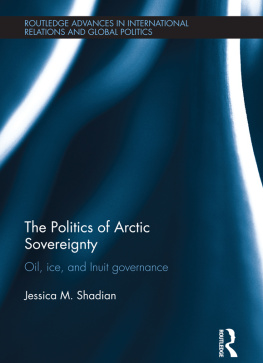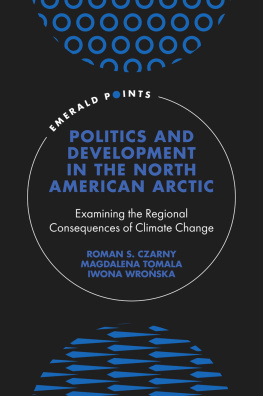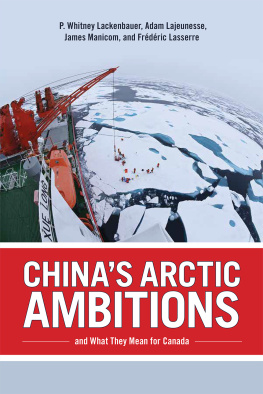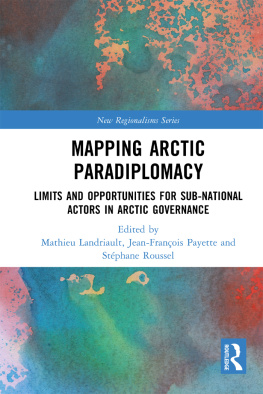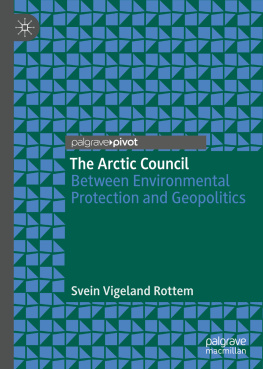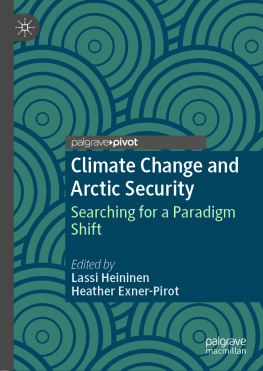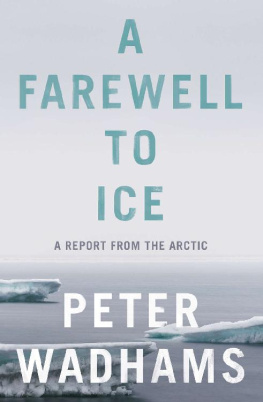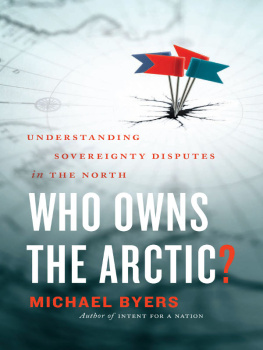| About the Authors
Heather A. Conley is director and senior fellow of the Europe Program at CSIS. Prior to joining CSIS, she served as senior adviser to the Center for European Policy Analysis, an independent, nonpartisan public policy research institute dedicated to the study of Central Europe. From 2005 to 2008, Ms. Conley served as the executive director, Office of the Chairman of the Board of the American National Red Cross. From 2001 to 2005, Ms. Conley served as deputy assistant secretary of state in the Bureau for European and Eurasian Affairs, with responsibilities for U.S. bilateral relations for the 15 countries of northern and central Europe. Previously, she was a senior associate with an international consulting firm led by former U.S. deputy secretary of state Richard L. Armitage. Ms. Conley began her career in the Bureau of Political-Military Affairs at the U.S. Department of State, where she served as the State Department liaison for the U.S. Department of Defenses Global Humanitarian Assistance Program. Following the collapse of the Soviet Union, she was selected to serve as special assistant to the U.S. coordinator of U.S. assistance to the newly independent states of the former Soviet Union. Ms. Conley received her B.A. in international studies from West Virginia Wesleyan College and her M.A. in international relations from the Johns Hopkins University Paul H. Nitze School of Advanced International Studies.
David L. Pumphrey is a senior fellow and codirector of the CSIS Energy and National Security Program. He has extensive public sector experience in international energy security issues. He was most recently deputy assistant secretary for international energy cooperation at the Department of Energy. During his career with the federal government, he led the development and implementation of policy initiatives with individual countries and multilateral energy organizations. He was responsible for policy engagement with numerous key energy-producing and energy-consuming countries, including China, India, Canada, Mexico, Russia, Saudi Arabia, and the European Union. Pumphrey represented the U.S. government on the technical committees of the International Energy Agency and the Energy Working Group of the Asia Pacific Economic Cooperation forum. He also represented the Department of Energy in the negotiations of the energy-related sections of the U.S.-Canada Free Trade Agreement and the North American Free Trade Agreement. Pumphrey received a bachelors degree in economics from Duke University and a masters degree in economics from George Mason University. He has spoken extensively on international energy issues and testified before Congress on energy security issues related to China and India.
Mihaela David is a fellow at The Arctic Institute - Center for Circumpolar Security Studies, where she conducts analysis of U.S. Arctic policy and Arctic regional governance. Ms. David was previously associated with the Europe Program at CSIS, focusing on the geopolitics of the Arctic region, economic and political developments across Europe, and transatlantic relations. Ms. David also previously served as a cybersecurity research contributor for Verisign iDefense and as a teaching assistant for the Science and Technology in International Affairs Program at Georgetown University. A native of Romania, Ms. David graduated summa cum laude from Skidmore College with a B.A. in economics and international affairs and received her M.A. in German and European studies from Georgetown Universitys Edmund A. Walsh School of Foreign Service. She is a member of the Phi Beta Kappa and Omicron Delta Epsilon honor societies.
Terence M. Toland is a research associate for the Europe Program at CSIS, where he conducts research and manages program activities on Arctic and European political, security, and economic issues. His past Arctic publications include A New Security Architecture for the Arctic: An American Perspective and The New Foreign Policy Frontier: U.S. Interests and Actors in the Arctic. Previously, he served as a research intern with the CSIS Human Rights and Security Initiative. Prior to joining CSIS, Mr. Toland had previous work experience at the German Marshall Fund office in Berlin and the British House of Commons in London, where he focused on transatlantic relations, combating human trafficking, and monitoring political extremism. He has four years of professional experience in academic publishing while working for Yale University Press. Mr. Toland graduated magna cum laude from Clark University with a B.A. in international relations and a concentration in holocaust and genocide studies. He received his M.A. in international relations and international economics from the Johns Hopkins University Paul H. Nitze School of Advanced International Studies.
| Introduction: Arctic Frontiers
F rom the nineteenth century Alaskan gold rush to todays modern-day rush to explore for oil, gas, and mineral resources, economic interests have and will continue to powerfully shape the Arctics future development. As the polarice cap rapidly melts, the choices Arctic states make regarding the development of these economic resources, the protection of a fragile ecosystem, and the balance these states strike between development and preservation will define the Arctic for the next century.
Arctic coastal states historically have pursued very different economic models of development. The Soviet Union, for example, promoted extensive Arctic development in which territorial control was interlinked with economic development and population dispersion across vast territories. The Soviet regime relied largely on the work of Gulag prisoners to industrialize the region. It heavily subsidized unprofitable industries in Siberia and the Arctic although the populations of this territory were less productive than others in the country. In a 2003 work titled The Siberian Curse, scholars Fiona Hill and Clifford Gaddy attempted to establish the cost, in technical, financial, and human terms, of developing Siberian regions that were unfavorable to modern human settlement. They created a temperature per capita system to provide a mea sure of the costs of cold when it came to Arctic development. They concluded that the Soviet interventions in the region were terribly expensive and inefficient, creating a difficult environmental and infrastructure-related legacy for Russia as it seeks to modernize and develop its Arctic resources today.
Both Canada and the United States, on the other hand, employed intensive economic development models. For these countries, economic development centered predominantly on extractive industries with minimal population centers and infrastructure requirements. Americas Arctic economic development primarily focused on North Slope oil (which currently holds approximately 6.1 billion barrels of oil, ) and even less infrastructure presence. The United States also struggles with a legacy of very limited infrastructure.
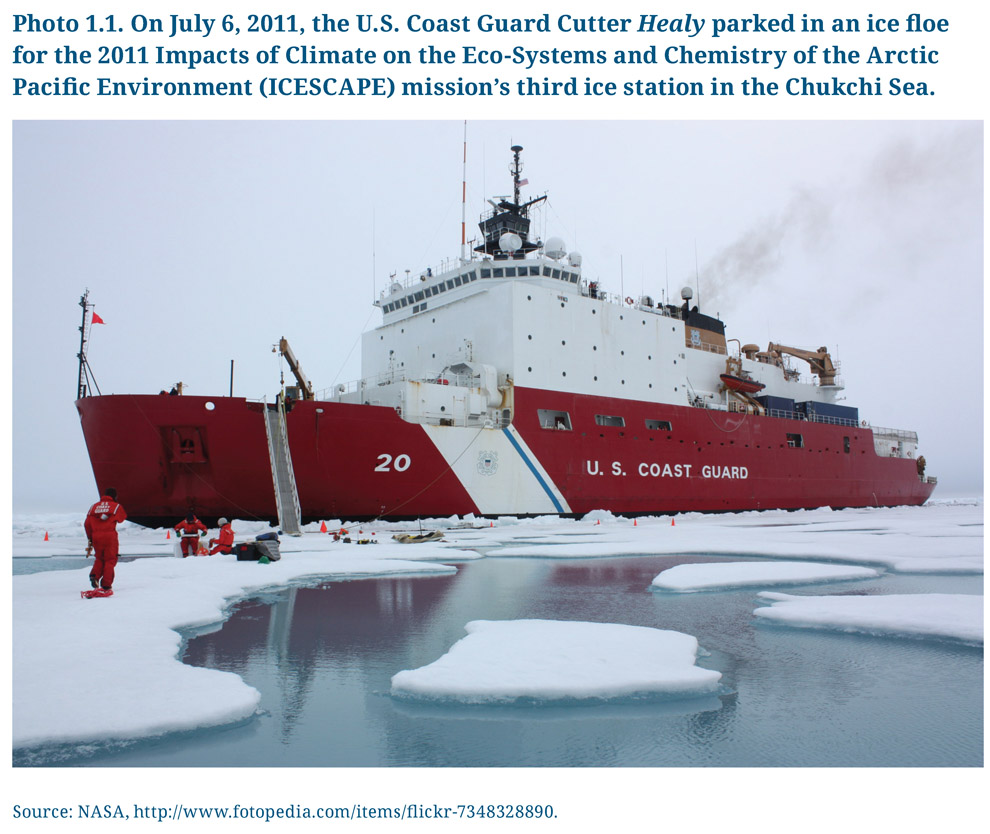
What are the costs and benefits of economic development in todays circumpolar Arctic? For the United States, it will be essential to develop a national economic strategy for the American Arctic, albeit in an increasingly resource-constrained and po litically polarized environment. The estimated 90 billion barrels of oil and 1,669 trillion cubic feet of natural gas now believed to be located in the Arctic may incentivize the formulation of this strategy. However, the discovery of unconventional gas in the United States has increased the global supply of liquefied natural gas (LNG), and therefore the discovery of gas in the Arctic may not be of near-term economic interest or benefit. New oil production in the Arctic, particularly from offshore discoveries, could potentially take decades to bring to market at great expense. The potential economic bonanza of exploiting the Arctics vast mineral resources appears more promising. The exploitation of mineral resources, particularly rare earth or so-called strategic minerals, iron ore, nickel, and palladium, may be a more important economic driver in the Arctic than natural resources in the near term. Whether the resources developed are mineral or hydrocarbon, however, they must find their way to receptive markets via shipping routes or pipelines. Double-hulled shipping vessels, deep water ports, improved navigation and satellite communication as well as improved icebreaker, search and rescue, and aviation infrastructure must be developed as well.


